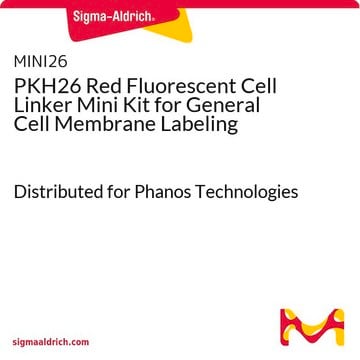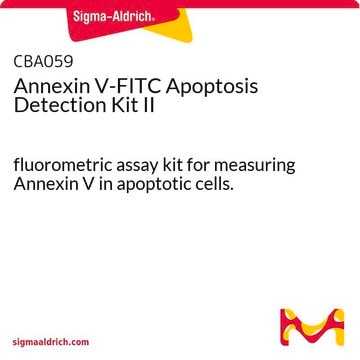Psi-CRE
94090902, mouse embryo, Fibroblast
Iniciar sesiónpara Ver la Fijación de precios por contrato y de la organización
About This Item
UNSPSC Code:
41106514
Productos recomendados
product name
Psi-CRE, 94090902
biological source
mouse embryo
growth mode
Adherent
karyotype
Not specified
morphology
Fibroblast
products
Not specified
receptors
Not specified
technique(s)
cell culture | mammalian: suitable
relevant disease(s)
cancer
shipped in
dry ice
storage temp.
−196°C
Cell Line Origin
Mouse NIH 3T3 transformed with Moloney murine leukaemia mutants
Cell Line Description
From a set of packaging cell lines useful for generating helper-free recombinant retroviruses with ectotropic host ranges. Two mutant Moloney murine leukaemia virus-derived proviral genomes carrying complementary mutations in the gag-pol or env regions were sequentially introduced into NIH 3T3 cells by co-transformation. Each genome contained a deletion of the Psi sequence necessary for the efficient encapsidation of retroviral genomes into virus particles and additional alterations at the 3′end of the provirus. Psi-CRE can be used to isolate clones that stably produce high titres (1000,000 cfu/ml) of recombinant retroviruses with ectotropic host ranges, viral producers derived from Psi-CRE do not transfer the packaging function or yield helper virus.
Application
Ecotropic helper-free recombinant retroviral packaging cell line. Valuable for `in vivo′ gene transfer studies aimed at cell lineage analysis and development of human gene replacement therapy.
Culture Medium
DMEM + 2mM Glutamine + 10% Foetal Bovine Serum (FBS) (NB. The results obtained by the depositor were gained using 10% Calf Serum (CS)).
Subculture Routine
Split sub-confluent cultures (70-80%) 1:3 to 1:6 i.e. seeding at 2-4 x 10,000 cells/cm2 using 0.25% trypsin or trypsin/EDTA; 5-10% CO2, 37°C.
Other Notes
Additional freight & handling charges may be applicable for Asia-Pacific shipments. Please check with your local Customer Service representative for more information.
Certificados de análisis (COA)
Busque Certificados de análisis (COA) introduciendo el número de lote del producto. Los números de lote se encuentran en la etiqueta del producto después de las palabras «Lot» o «Batch»
¿Ya tiene este producto?
Encuentre la documentación para los productos que ha comprado recientemente en la Biblioteca de documentos.
Nuestro equipo de científicos tiene experiencia en todas las áreas de investigación: Ciencias de la vida, Ciencia de los materiales, Síntesis química, Cromatografía, Analítica y muchas otras.
Póngase en contacto con el Servicio técnico








